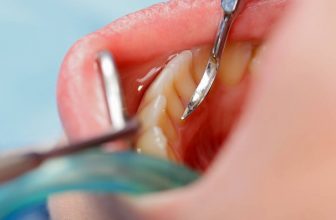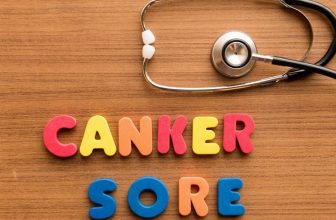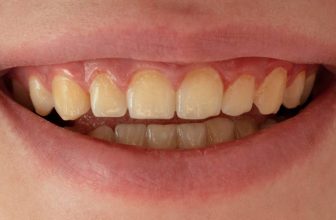
Can you die from a broken tooth? It might sound like a plot twist in a dark comedy, but the reality is no laughing matter. We’ve all been there—crunching down on something hard and feeling that dreaded crack. While most of us brush it off and schedule a dentist appointment, ignoring that broken tooth could lead to serious health issues.
Believe it or not, a broken tooth can become a ticking time bomb. Bacteria love to invade those tiny crevices, leading to infections that can spread like wildfire. Left untreated, these infections can escalate into life-threatening conditions. So, the next time you think about postponing that dental visit, remember: your life might just depend on it.
Key Takeaways
- Ignoring Broken Teeth Can Be Dangerous: Broken teeth can lead to severe infections that, if left untreated, might spread to other parts of the body, potentially becoming life-threatening.
- Common Symptoms and Complications: Pain, swelling, difficulty eating, and sharp edges causing mouth ulcers are typical problems associated with broken teeth. These can further develop into abscesses, leading to more severe health issues.
- Immediate Dental Care Is Crucial: Addressing a broken tooth promptly with professional dental care is essential to prevent infections and long-term complications like systemic health issues.
- Treatment Options: Dentists use procedures like fillings, crowns, and root canals to treat broken teeth. Home remedies can provide temporary relief but are not substitutes for professional treatment.
- Preventive Measures: Proper oral hygiene, regular dental check-ups, avoiding hard foods, and protective gear during physical activities can help prevent broken teeth.
Understanding Broken Teeth
When a tooth breaks, it can expose the inner layers, including the pulp. This makes the tooth vulnerable to bacteria. These bacteria can enter the pulp, leading to infections. If ignored, these infections can spread to other areas of the body. I’ve seen cases where untreated infections resulted in severe complications.
Pain is a common symptom of broken teeth. It ranges from mild discomfort to intense throbbing. Swelling around the affected area often accompanies the pain. This swelling indicates inflammation, which is how the body responds to potential infections.
Eating becomes difficult with a broken tooth. Chewing on one side puts extra pressure on other teeth, which can lead to more dental issues. Food particles can also get lodged in the broken area, causing further contamination. Maintaining oral hygiene becomes challenging under these conditions.
Sometimes, a broken tooth can cause sharp edges. These sharp edges can cut the tongue or insides of the cheeks. This results in ulcers, making everyday activities like eating and talking painful.
Infections stemming from broken teeth sometimes lead to abscesses. Abscesses form as pockets of pus in the surrounding gum tissue. They not only cause severe pain but can also lead to fever. If an abscess bursts, the infection spreads across the bloodstream, posing serious health risks.
Bleeding is another concern with broken teeth. It might seem minor initially but continued bleeding signifies underlying issues. Blood clots can form, yet they might not adequately protect the exposed pulp from bacteria.
Ignoring a broken tooth isn’t wise. It’s critical to address any dental damage promptly to prevent infections and other complications. Regular dental visits and immediate attention to any dental issues help maintain overall health.
Immediate Risks Of A Broken Tooth

Ignoring a broken tooth has serious consequences. Addressing the risks immediately can prevent dangerous outcomes.
Infection
Infections often stem from broken teeth. Bacteria can enter through the break, leading to an infection. Abscesses, painful, pus-filled pockets, may form at the root. Abscesses can cause swollen lymph nodes, fever, and a bad taste in the mouth. If left untreated, the infection could spread. Bacteria might travel to the bloodstream, resulting in sepsis. Sepsis, a life-threatening condition, requires prompt medical attention. In severe cases, organs can fail. Therefore, prompt treatment of a broken tooth is crucial to avoid infections and grave complications.
Pain And Discomfort
Pain frequently accompanies a broken tooth. Exposed nerves cause sharp, shooting pain on contact with food or liquids. Consuming hot or cold items can exacerbate the discomfort. Sharp edges from the break often irritate the tongue and cheeks, leading to sores. These sores can worsen, making it hard to speak or eat. Over-the-counter pain relievers might offer temporary relief. However, seeing a dentist remains essential. Delayed treatment can increase pain and prolong suffering. Ensuring swift dental care minimizes pain and discomfort from broken teeth.
Long-Term Complications

A broken tooth left untreated can lead to serious long-term complications. Addressing dental issues promptly can prevent these outcomes.
Abscess Formation
An untreated broken tooth can result in an abscess, which is an infection in the root or between the gum and the tooth. I know from research that the bacteria can invade the dental pulp, leading to pus accumulation. This abscess can cause severe pain, swelling, fever, and a persistent bad taste in the mouth. If you don’t treat it, the infection can spread to your jaw, neck, or even brain.
You might experience relentless throbbing pain if you have an abscess. The pain often radiates to your ear, jawbone, or neck. Sometimes, the presence of the abscess can make you extremely sensitive to hot and cold temperatures. Additionally, the infection can cause difficulty in swallowing or breathing if it spreads.
It’s essential to deal with a broken tooth immediately. Dental intervention can drain the abscess and remove the infection source, preventing further complications.
Systemic Health Issues
A broken tooth can lead to systemic health problems if left untreated. Chronic dental infections can spread through the bloodstream, leading to significant health risks. Medical studies show that bacteria from a dental infection can enter the bloodstream and cause conditions such as endocarditis or cardiovascular infections.
Sepsis is another serious risk associated with untreated dental infections. The bacteria may cause systemic inflammation, potentially resulting in septic shock, which is life-threatening. This condition requires immediate medical attention to prevent organ failure and death.
Individuals with existing health conditions like diabetes or heart disease are at a higher risk. In such cases, a broken tooth can exacerbate underlying health issues, making it crucial to seek prompt dental care. Regular dental check-ups can help prevent systemic health issues and improve overall well-being.
Treatment Options For Broken Teeth
When it comes to broken teeth, immediate attention and proper care are crucial to prevent severe complications. Various treatments can address broken teeth, depending on the severity and location of the break.
Dental Procedures
Dentists offer a range of procedures to treat broken teeth effectively. Fillings and dental bonding repair minor chips or fractures. For more extensive damage, crowns cover and protect the remaining tooth structure while restoring function. Veneers also provide an aesthetic and protective option, especially for front teeth.
Root canal therapy addresses breaks that expose the tooth pulp, preventing infections and saving the tooth. Dental implants serve as a replacement for teeth that are beyond repair, providing a permanent solution. In some cases, extractions become necessary to prevent further health issues. Prompt dental interventions reduce long-term complications and promote overall oral health.
Home Remedies
At-home care can alleviate symptoms before you can see a dentist. Rinsing your mouth with warm saltwater cleans the area and reduces the risk of infection. Over-the-counter pain relievers like ibuprofen manage pain and inflammation. Applying a cold compress to the outside of your mouth minimizes swelling and discomfort.
Sugar-free gum or dental wax can cover sharp edges temporarily, protecting your tongue and cheeks. Avoiding hard foods that can aggravate the break also helps. These remedies provide temporary relief, but they are not substitutes for professional dental care. Seeking a dentist’s evaluation ensures comprehensive treatment for broken teeth.
Preventive Measures And Best Practices
Maintaining proper oral hygiene is essential to prevent broken teeth. Brushing teeth twice daily with fluoride toothpaste and flossing once daily helps remove plaque and bacteria. Regular dental check-ups, at least twice a year, enable early detection of potential issues. Dentists can spot weak areas and apply treatments to strengthen teeth.
Adhering to infection control protocols is critical. Using personal protective equipment, sterilizing instruments, and maintaining hygiene standards reduce infection risks. These practices, introduced during the COVID-19 pandemic, remain vital for everyone’s safety.
Reducing the risk of trauma to teeth involves avoiding hard foods like ice or nuts. For those engaged in contact sports, wearing a mouthguard provides additional protection. When engaging in physical activities, it’s wise to take preventive measures to guard against injuries.
Digital radiography is another effective tool. It reduces radiation exposure compared to traditional X-rays, making it a safer option. This technology assists in early diagnosis and prompt treatment, further minimizing risks.
Incorporating these best practices into daily routines can significantly reduce the likelihood of dental emergencies. It’s my responsibility to protect my teeth and seek professional help at the first sign of trouble. By following these guidelines, I’m safeguarding my overall health.
Conclusion
Neglecting a broken tooth can lead to serious health risks that shouldn’t be underestimated. Immediate dental care is essential to prevent infections from escalating into life-threatening conditions. While home remedies can offer temporary relief they’re no substitute for professional treatment. Maintaining proper oral hygiene and regular dental check-ups are vital preventive measures. By taking these steps you can protect your overall health and avoid the severe consequences of a broken tooth.
Frequently Asked Questions
What are the immediate risks of neglecting a broken tooth?
Neglecting a broken tooth can lead to serious infections, including bacterial infections and abscesses, which can progress to life-threatening conditions like sepsis.
Can a broken tooth cause long-term health issues?
Yes, ignoring a broken tooth can result in chronic infections, severe pain, swelling, and systemic health problems, including infections spreading to other parts of the body.
What dental treatments are available for a broken tooth?
Treatment options include fillings, crowns, veneers, root canal therapy, dental implants, and extractions. The choice depends on the severity and location of the break.
Are home remedies effective for a broken tooth?
Home remedies like rinsing with saltwater and using over-the-counter pain relievers can provide temporary relief but are not substitutes for professional dental care.
How can I prevent dental emergencies like a broken tooth?
Maintain proper oral hygiene, schedule regular dental check-ups, avoid hard foods, wear mouthguards during contact sports, and use digital radiography for early diagnosis.
What should I do if I break a tooth?
Seek prompt dental care immediately. In the meantime, rinse your mouth with saltwater and use over-the-counter pain relievers to manage pain.
Why is it important to adhere to infection control protocols for dental health?
Following infection control protocols helps prevent dental infections from developing or worsening, thereby protecting overall health.
Is it necessary to wear a mouthguard during contact sports?
Yes, wearing a mouthguard during contact sports can help prevent dental injuries, including broken teeth.








